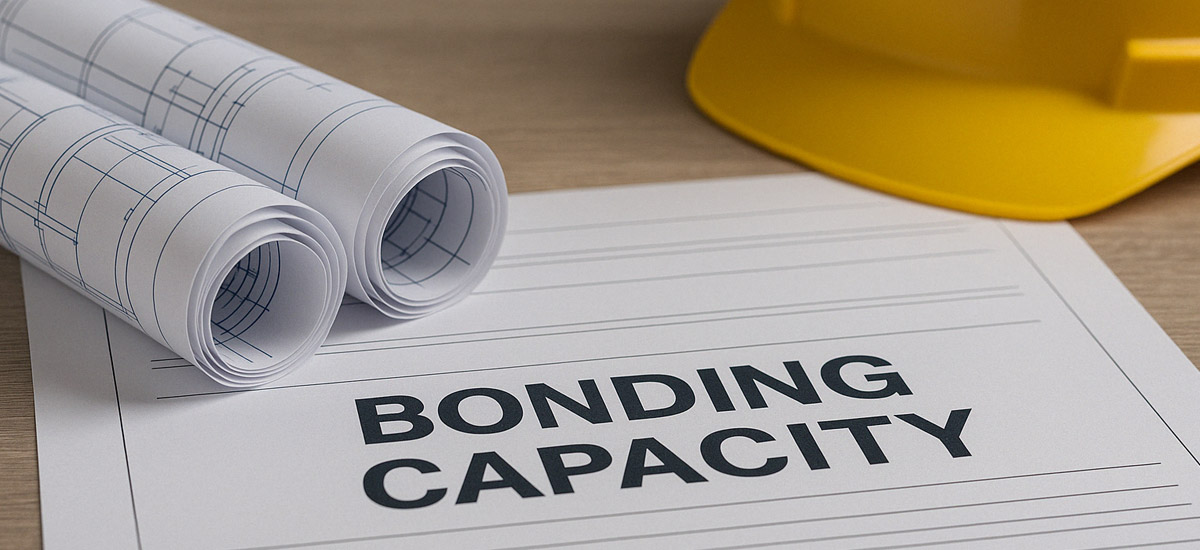While surety bonds are an essential part of doing business for many industries, it’s important to clarify a common misconception: surety bonds primarily protect the obligee — not the principal (your business).
As a business owner, the financial security provided by a surety bond does not extend to you directly; instead, it assures the party requiring the bond (the obligee) that you will fulfill your contractual or regulatory obligations. If you don’t, the bond ensures they are compensated for any losses.
While the surety company initially pays any valid claims, the principal is ultimately responsible for reimbursing the surety.
This means that the bond does not shield the principal from financial loss; instead, it acts as a credit arrangement that the principal must repay.
In essence, surety bonds are designed to protect the interests of the obligee and, in some cases, taxpayers (for public projects), rather than serving as insurance for the principal’s business. The bond guarantees that the obligee is not left financially burdened if the principal defaults or fails to meet their obligations.
For many businesses, securing the right surety bonds is a stepping stone toward credibility, trust, and long-term growth.
At Bond Connect, a brokerage specializing solely in bonding services, we help businesses and individuals secure the bonds they need while ensuring they understand their value.
What is a Surety Bond?
Surety bonds primarily protect the obligee (the party requiring the bond) rather than the principal (the business obtaining the bond).
The purpose of a surety bond is to guarantee that the principal will fulfill their contractual or regulatory obligations.
If the principal fails to do so—whether by not completing a project, failing to meet quality standards, or not complying with regulations—the obligee can file a claim on the bond to recover financial losses or ensure the project’s completion.
At its core, a surety bond is a three-party agreement between:
Obligee – The entity that requires the bond (e.g., a project owner or government agency).
Principal – The party required to obtain the bond (e.g., a contractor).
Surety – The entity (usually an insurance company) that guarantees the principal’s obligations.
The surety bond ensures that the principal will fulfill their obligations according to the terms of the agreement. If the principal fails, the surety steps in, either by covering the financial loss up to the bond’s value or ensuring the obligations are completed.

The Protective Role of Surety Bonds
Surety bonds play a protective role for all parties involved in a contract by acting as a financial guarantee that obligations will be fulfilled.
For the obligee (the party requiring the bond), the bond provides direct protection. If the principal fails to meet their obligations, the obligee can file a claim to recover losses, ensure completion of work, or enforce compliance—minimizing financial risk.
For the principal (the business obtaining the bond), while the bond doesn’t protect them financially, it offers indirect benefits such as increased credibility, access to larger projects, and compliance with regulatory requirements. It also encourages responsible performance, since claims could result in financial liability.
For the surety (the company issuing the bond), their role is to assess the principal’s risk and back them only if they’re confident in their ability to deliver. If a claim arises, the surety may step in to resolve the issue and recover costs from the principal.
In this way, surety bonds create a structured, accountable framework that builds trust and stability in commercial and regulated environments.
The Obligee is the Protected Party
In a surety bond agreement, the obligee—whether a private client, government agency, or project owner—is the primary beneficiary.
If you, as the principal, fail to meet the terms of the contract, complete the project, or comply with regulations, the obligee can make a claim on the bond to recover financial damages or ensure the work is completed.
The bond exists to protect the obligee’s interests, ensuring they aren’t left with financial losses due to non-performance, default, or misconduct by the principle or other parties.
Protecting Clients and Project Owners
For businesses providing services or taking on contracts, a surety bond reassures their clients that they will deliver on their commitments.
If a contractor, for instance, fails to complete a project or meet quality standards, the bond guarantees that the client will be compensated or the work will be completed.
Mitigating Financial Risk
For project owners, especially in industries like construction, the risk of financial loss is substantial if a contractor defaults.
A performance bond, for example, ensures that funds are available to complete the project or address shortcomings.
Similarly, labour & material payment bonds protect subcontractors and suppliers by guaranteeing they’ll be paid even if the principal encounters financial difficulties.
Bond Connect, Canadian Bonding Experts
How Surety Bonds Help Businesses Grow
While surety bonds primarily protect the obligee, they also play a vital role in helping businesses expand, unlock new opportunities, and comply with industry regulations.
Let’s explore how surety bonds can directly and indirectly support your business success:
Enhancing Credibility and Trust
Businesses that secure surety bonds demonstrate their commitment to ethical practices and reliability. This can open doors to lucrative contracts and partnerships, particularly in industries where bonding is a prerequisite for bidding on projects.
A bonded business demonstrates financial stability, trustworthiness, and professionalism, making it more appealing to clients and partners.
Being bonded shows that your business has passed a rigorous prequalification process with a surety provider, including financial vetting, performance history, and operational capabilities.
Clients and project owners are more likely to trust and work with bonded businesses, knowing they are protected if issues arise.
By reducing the perceived risk for the obligee, bonds make it easier for clients to work with your business.
Unlock Access to Bigger Projects and Contracts
For businesses in industries like construction, contracting, and customs brokerage, surety bonds are often a prerequisite for bidding on large or high-value projects. Without them, your business may not even be eligible to compete for these opportunities.
Many contracts, especially in construction and public works, are only available to businesses that can provide the necessary bonds.
Many public sector contracts require performance and payment bonds to ensure taxpayer-funded projects are completed on time and according to specifications.
Private project owners often require bonded contractors to minimize their own financial risk.
Meeting Regulatory Requirements
Many industries in Canada require businesses to hold surety bonds to operate legally. For instance, customs brokers need bonds under the CBSA’s CARM system, and construction firms may require them for government contracts. These bonds serve as a financial guarantee that the business will meet its legal or contractual obligations. Compliance ensures companies can continue operations without interruptions, costly delays, or regulatory penalties.
Under the Canada Border Services Agency’s (CBSA) CARM program, a customs broker must secure a bond to guarantee the payment of duties and taxes on behalf of their clients. Without this bond in place, brokers are unable to clear goods, which can lead to lost clients and the inability to conduct business. The bond is not optional—it’s a legal requirement for brokers to operate under the new CBSA system.
In the trades sector, certain provinces also require surety bonds as part of contractor licensing. For example, Technical Safety BC mandates that electrical and gas contractors obtain bonds to be licensed in the province. These bonds help ensure that work is performed safely and in accordance with provincial codes and regulations. Similarly, in Saskatchewan, electrical and gas contractors must often provide a bond as part of their licensing process to demonstrate financial accountability and professional responsibility.
Without the necessary bond—whether it’s for customs, construction, or regulated trades—your business risks being denied permits, delayed in launching projects, or facing fines and suspensions. Surety bonds are more than just a formality; they are essential tools that protect both the public and your business, ensuring you meet the legal standards set by governing authorities.

Strengthen Relationships with Subcontractors and Suppliers
Securing payment bonds not only protects subcontractors and suppliers from non-payment but also reassures them that working with your business is a safe and reliable choice.
Being bonded shows your commitment to honoring financial obligations, making you a more attractive partner for skilled subcontractors and suppliers.
A reputation for reliability ensures your business can attract top talent and maintain strong supply chains.
Drive Long-Term Business Growth
By fulfilling bonding requirements, your business can scale operations, expand into new markets, and improve its standing within the industry.
Many high-value contracts require surety bonds. Being bonded allows you to compete for these opportunities, growing your market share.
As you win more contracts and establish a strong reputation, you can reinvest profits into hiring, equipment, and innovation.
Boost Your Competitive Edge
In industries where bonding is a requirement, being unbonded immediately eliminates your business from contention. Conversely, being bonded not only makes you eligible but also sets you apart as a professional and reliable choice.
The surety bonding process involves financial scrutiny, so being bonded indicates that your business has met high standards.
Clients view bonded businesses as lower-risk options, giving you an edge over competitors who are not bonded.
Frequently Asked Bonding Questions
Q: Do surety bonds actually protect my business?
A: Not directly. Unlike insurance, a surety bond is designed to protect the Obligee—the party requiring the bond—not your business (the Principal). If a claim is made and paid out, you’re responsible for repaying the surety. However, indirectly, bonds help protect your reputation, build trust with clients, and give your business access to larger contracts and regulated opportunities.
Q: If I have a surety bond, do I still need insurance?
A: Yes. Surety bonds and insurance serve very different purposes. Insurance protects your business against unforeseen risks, while a surety bond protects the public, project owner, or regulator from non-performance or non-compliance on your part. Many industries legally require both.
Q: What happens if a claim is made on my bond?
A: If a claim is filed and found to be valid—such as for incomplete work, unpaid subcontractors, or regulatory non-compliance—the surety will pay the claim amount to the obligee. However, you are legally obligated to repay the surety in full. This is why surety companies thoroughly assess your financial strength before issuing a bond.
Q: How does a surety bond help my business grow?
A: While it doesn’t protect your business in the traditional sense, a surety bond acts as a credential that unlocks growth opportunities. It shows you’re financially stable, trustworthy, and qualified to take on projects—especially in regulated industries or public contracts. Being bonded signals to clients and regulators that your business is serious and accountable.
Conclusion
While surety bonds are indispensable for many businesses, it’s crucial to recognize their true function: protecting the obligee, not the principal. Understanding this distinction helps business owners plan appropriately, mitigate risks, and avoid costly surprises.
While surety bonds primarily protect the obligee, they offer numerous indirect benefits that help businesses grow, build credibility, and meet their obligations.
By enabling access to new opportunities, facilitating regulatory compliance, and fostering trust among clients and partners, surety bonds serve as a critical tool for businesses looking to scale and succeed.
At Bond Connect, we specialize in helping businesses navigate the complexities of bonding. From finding the right bond to understanding your obligations, we’re here to support you every step of the way., providing bonding solutions tailored to your unique needs.
Whether you’re securing your first bond or expanding into larger markets, our team is here to guide you through the process and support your growth journey.
We believe a surety bond is more than a piece of paper (or an electronic one) — it’s a safeguard for businesses, clients, and industries. For Canadian businesses, surety bonds are not just a legal necessity but also a tool to enhance trust, mitigate risks, and unlock new opportunities.
Contact us today to learn how surety bonds can help you achieve your business goals!






